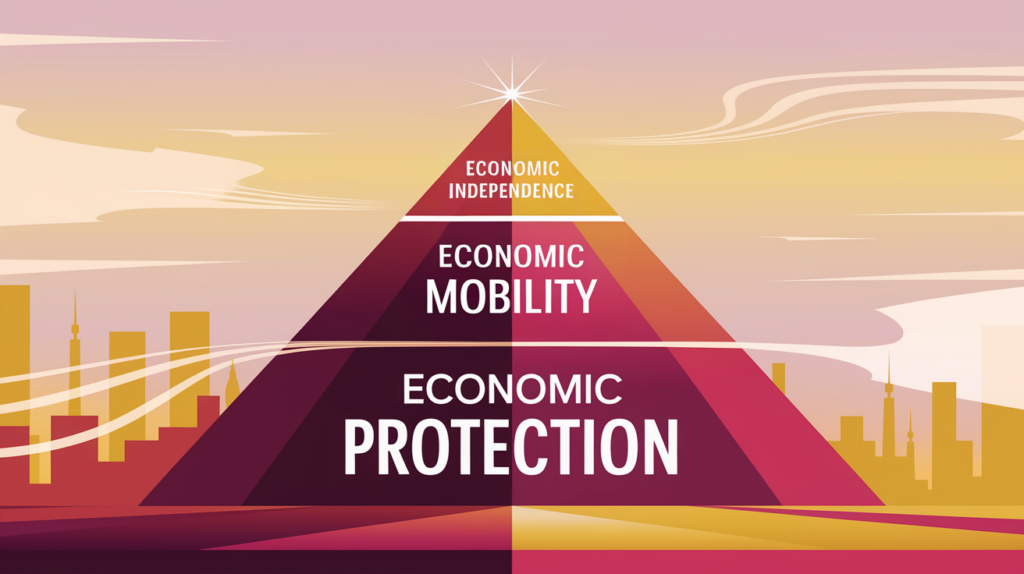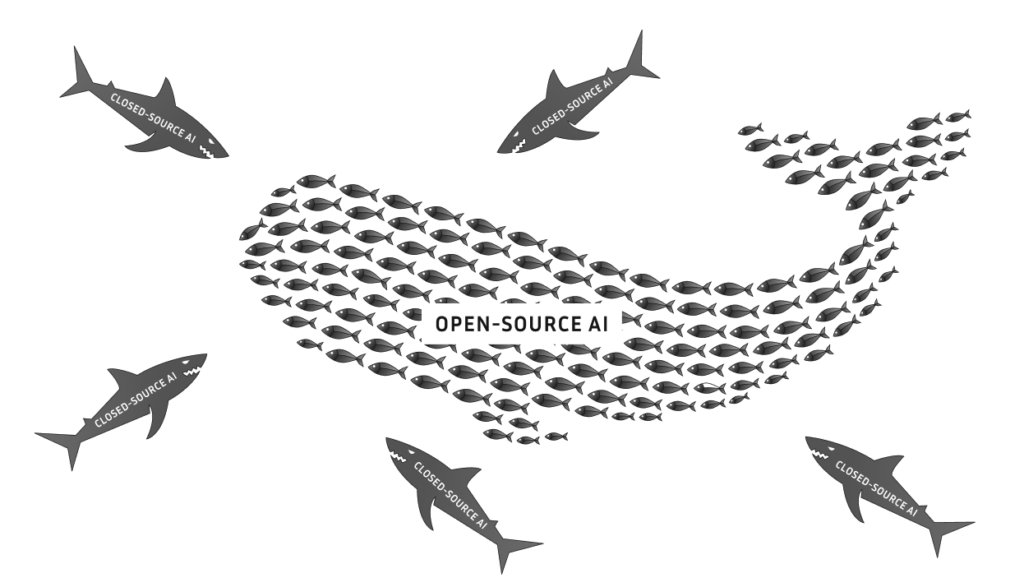Fintech In Focus: Defining ‘World Positive Fintech’ and our 2024 Roadmap
Katie Giometti |

At Obvious Ventures, we’re seeking founders who are building disruptive solutions to the biggest challenges of our time. We call this world positive. The defining characteristics of world positive fintech are:
- Accessibility. We invest in companies that increase affordable access to primary financial services (i.e., banking, credit, and financial planning) for all individuals and small and medium-sized businesses (SMBs). Portfolio companies in this area include: One, Prism, Grid, and Brightside.
- Acceleration. We partner with companies that accelerate the growth and efficiency of critical entities (i.e., SMBs, community banks, and healthcare institutions). Portfolio companies in this area include: Gusto and Tandym.
- Assurance. We seek companies that provide increased financial security to individuals and companies. We are particularly interested in insurtech, retirement preparedness, and fraud prevention. Portfolio companies in this area include: Openly and Corvus.
Despite the incredible financial innovation of the past twenty years, we still see substantial room for improvement. One in five households is still unbanked or underbanked, as well as one of every three SMBs. Meanwhile, income inequality has worsened by 20 percent since 1980 and more than 50 percent of SMBs are unable to secure critical funding to operate and grow. And Social Security, a retirement lifeline for more than 65 million Americans, will run out of funds by 2033.
We see these challenges as opportunities. And we want to find entrepreneurs who think like us. We imagine a world where:
- Consumers & SMBs can have immediate access to capital when they need it without having to apply for a loan
- SMB owners can spend 100 percent of their time delivering high-quality products to their customers, while payroll and accounting run seamlessly in the background
- Insurance agents are motivated by mitigating risk and keeping their customers safe
- Retirement income is available for everyone who needs it and planning is automatic
Fintech Themes We’re Exploring in 2024
In 2024, we’re excited to explore these key areas:
1. Inclusive & Agile Lending
The majority of Americans and SMBs are reliant on access to credit. However, two main issues persist: One, underwriting decisions are often based on incomplete data, such as credit scores, which are insufficient, outdated, and prone to error. And two, underwriting models are incredibly challenging to update due to strict regulation and legacy infrastructure. As a result, between 40 and 60 million Americans are excluded from accessing credit, and more than 50 percent of SMBs cannot secure the funding they need. Cash flow data has been proven to increase the accuracy of credit decisions, and we believe the Consumer Financial Protection Bureau’s Q4 Notice of Proposed Rulemaking will make lenders even more comfortable using this data in underwriting decisions. We also believe that the reduction of interest rates will prompt lenders to reinvest in their technology stacks in preparation of higher origination volumes, which paves the way for entrepreneurs building in this space.
Solutions we’re excited about:
- No- or low-code decision engines that allow lenders to more seamlessly update the data sets and the rules governing their underwriting decisions
- Automated model risk validation that reduces the friction, cost, and time for model risk review
2. Fraud Prevention in the Age of AI
Fraud is rampant. According to Alloy, nearly 60 percent of banks, fintechs, and credit unions lost over $500K in direct fraud losses in 2023 and more than 25 percent lost over $1 million. We expect these numbers to rise with more attacks fueled by Generative AI, which mimics natural human behavior with alarming accuracy, and the July launch of FedNow, which has proven to be a popular fraud vector due to its speed and irrevocability. While Generative AI is part of the problem, we believe it can also be a part of the solution by enhancing fraud detection capabilities. Buyers are also prioritizing fraud prevention in response to heightened losses and in anticipation of more sophisticated attacks. According to a recent report, three of four banks and fintechs shared intentions to invest more in fraud monitoring this year.
Solutions we’re excited about:
- Enhanced detection capabilities incorporating new modalities (i.e., identifying deep fakes) or solutions blending existing methods (i.e., passkeys, biometrics) in novel ways
- Fraud decision engines that detect fraud in real time
3. Modernizing Property and Casualty Insurance
Property and Casualty Insurance is a massive $888 billion market with abundant opportunities for innovation. On the supply side, losses are surging, prompting reduced capacity to write new policies and higher premiums for businesses & consumers. On the distribution side, inefficient, manual processes are causing brokers to spend more than 70% of their time on back-office tasks instead of with their clients. We saw Insurtech 1.0 overcorrect for these challenges by disintermediating the broker and prioritizing top-of-funnel growth over underwriting fundamentals. We see an opportunity to build on the lessons of Insurtech 1.0 and take another crack at improving P&C underwriting & distribution. Reductions in capacity are creating a void in the market that presents an opportunity for emerging players. Meanwhile, Generative AI presents opportunities to underwrite with better and more accurate data, and to streamline existing workflows, such as communication between brokers and carriers.
Solutions we’re excited about:
- AI Copilots that can help P&C brokers with administrative tasks, such as determining the best policies for a customer, soliciting and evaluating quotes, summarizing policies, and servicing renewals
- Managing General Agents (MGAs) that are addressing emerging insurance categories (i.e., parametric insurance) or are underwriting existing categories in unique ways (i.e., with proprietary, proven datasets)
4. Empowering Community Banks
There are roughly 4500 community banks in the U.S. providing critical financial services to 28 million Americans. A high federal funds rate and recent regional bank failures are putting a greater strain on community banks that are already battling consolidation. Additionally, sponsor banks are facing increased scrutiny from regulators. According to the 2023 CSBS Annual Survey of Community Banks, the top areas of concern for community bankers are net interest margin and cost of funds, core deposit growth, and regulation.
Solutions we’re excited about:
- Deposit marketplaces to allow community banks to more efficiently meet liquidity requirements
- Compliance tooling to enable banks to meet tightening regulatory requirements
- Digital infrastructure that enables under-resourced community banks to offer features on par with other large banks & fintechs
5. Fintech x Climate
The climate crisis continues to intensify as rising temperatures fuel more extreme weather. (We are writing this in the middle of a California atmospheric river!). In addition to posing significant physical harm, climate change is also costly. Climate change raises virtually every budget line item for Americans, including insurance, healthcare, food, and energy. The Inflation Reduction Act acknowledged this and provided nearly $390 billion for climate mitigations and adaptations, including sizable tax credits for home energy efficiency.
Solutions we’re excited about:
- Flexible financing for decarbonization projects (both residential and larger-scale projects)
- Data companies that are providing granular data and models showing the impact of climate change on individual properties and assets
- Insurers and lenders who are incorporating climate data into their underwriting processes
Are you building in one of these themes? Contact us at Katie@obviousventures.com and Vishal@obviousventures.com.



